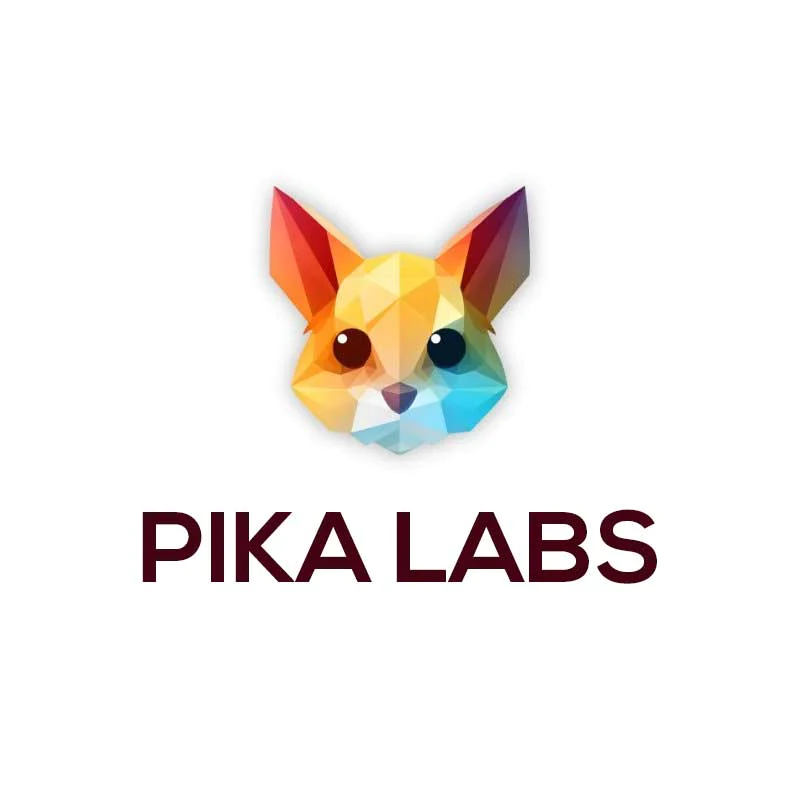Videos are inarguably one of the most prominent means of media consumption; be it long movies and YouTube videos or short TikTok reels, they’re everywhere. Yet video creation in itself has long been a field for professionals. Demi Guo felt this need when she spend winter of 2022 painstakingly making a movie using generative AI for Runway’s ‘AI Film Festival’. Despite being one of the most technical and AI oriented teams in the competition, the awards went to professional videographers, and Guo now had a new goal in mind. Partnering with fellow Stanford Ph.D student, Chenlin Meng, she introduced Pika, an accessible video AI generator.

Since its start six months ago, the platform has garnered a community of half a million users, generating millions of videos per week. Adding new milestones to their growth story, Pika announced their three rounds that helped them raise $55 million. The first two pre-seed and seed rounds were led by Nat Friedman & Daniel Gross. Their latest Series A round worth $35 million was led by Lightspeed Venture Partners.
Pika’s investors also include Elad Gil, Adam D’Angelo (Founder and CEO of Quora); Zach (Co-Founder of Ramp); Andrej Karpathy; Clem Delangue (Co-Founder and CEO of Hugging Face and Partner at Factorial Capital); Craig Kallman (CEO of Atlantic Records); Alex Chung (Co-Founder of Giphy), Aravind Srinivas (CEO of Perplexity); Vipul Ved Prakash (CEO of Together); Mateusz Staniszewski (CEO of ElevenLabs); and Keith Peiris (CEO of Tome); as well as venture firms such as Homebrew, Conviction Partners, SV Angel, and Ben’s Bites; alongside many other esteemed industry leaders and AI experts.
“A startup’s biggest weapon and biggest advantage is speed, and this is honestly the fastest moving team I’ve ever seen,” shared Lightspeed partner Michael Mignano.
Introducing Pika 1.0
Along with the announcement, Pika also unveiled Pika 1.0. This major product upgrade includes a new AI model capable of generating and editing videos in diverse styles such as 3D animation, anime, cartoon and cinematic, and a new web experience that makes it easier to use. This new upgrade keeps video-making at the heart of entertainment while making it accessible to all.
“Video is at the heart of entertainment, yet the process of making high-quality videos to date is still complicated and resource-intensive. When we started Pika six months ago, we wanted to push the boundaries of technology and design a future interface of video making that is effortless and accessible to everyone,” Pika shared in a blogpost.
Competing with generative AI firms like Runway and Stability AI, Pika claims to bring more to the table. Its tools can extend the length of existing videos and even change the style, with options like ‘live action’ or ‘animated’. It can modify aspects of any video instantly through inpainting and even adjust camera movement.
“Just as other new AI products have done for text and images, professional-quality video creation will also become democratized by generative AI. We believe Pika will lead that transformation. Given such an impressive technical foundation, rooted in an early passion for creativity, the Pika team seems destined to change how we all share our stories visually. At Lightspeed, we couldn’t be more excited to support their mission to allow anyone to bring their creative vision to life through video, and we’re thrilled to be investing alongside other amazing investors at the forefront of AI,” Lightspeed’s Michael Mignano said in a press release.
More about Pika
Pika is the birth child of two experts in the field of Computer Science: Demi Guo and Chelin Meng. The duo are former students in Stanford’s Artificial Intelligence Lab. With multiple papers published on generative AI and Computer Science, they boast a robust portfolio, having worked in companies like Stability AI, Google Brain, Microsoft, and more.
Pika’s foundation is rooted in the early passion for creativity for both the founders. While Guo leaned towards creative writing, Meng wanted to be an animator. Pika is the perfect product of this creative flow. With the new funding, they plan to expand their team to about 20 people by the next year. For them, monetising the product is not a priority, though the company might introduce a tiered subscription model for users.
“We’re not trying to build a product for film production. What we’re trying to do is something more for everyday consumers — people like me and [Meng] who are creators at heart, but not that professional,” Demi Guo shared in an interview with Forbes.
Join The Story Watch’s initiative to create a vibrant community for the startup ecosystem.

